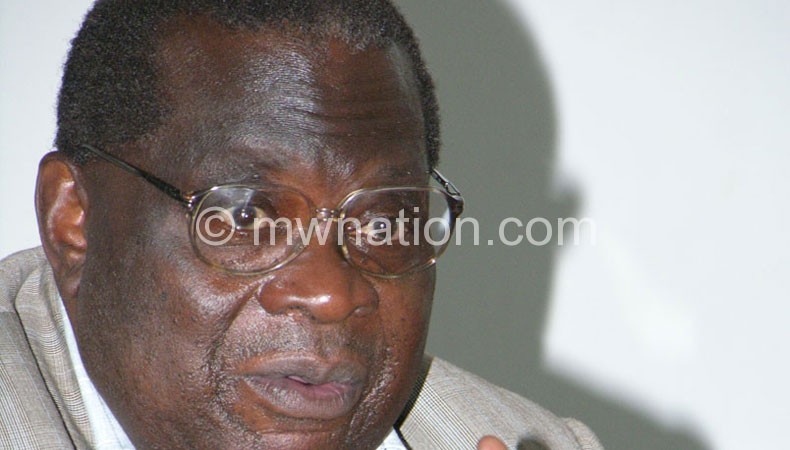‘Harmonisation of salaries illegal’

Government’s decision to harmonise salaries in the public service to achieve equity of benefits among workers may be illegal and untenable, Nation on Sunday has learnt.
According to Dr. Mwiza Jo Nkhata, a law lecturer at the University of Malawi’s Chancellor College, the exercise “may simply be illegal because in other institutions, the supreme law of the land, the Constitution, dictates procedures of how a particular department would be remunerated.”
In an exclusive interview with Nation on Sunday this week, Nkhata argued that a wholesome harmonisation is unlikely to achieve equity.
He said government in some cases negotiates contracts in different departments such that terms and conditions differ and it would be difficult for the Executive arm of government to change the set-up.
Citing the Judiciary as an example, Nkhata said benefits for judiciary employees are determined or reviewed by the Judicial Service Commission (JSC), as dictated by the Constitution, before Parliament approves them.
“Once Parliament approves them, no one can come and tamper with that,” he said.
But Finance Minister Goodall Gondwe on Friday said government wants to match the basic salary in the entire civil service, although it is prepared to give a little allowance to people holding special positions such as judges and doctors.
Said Gondwe: “We are discussing with the Judiciary. We are not going to reduce any of their entitlements. Once we agree on the basic salaries, we will then take the matter to Parliament.
“If we bowed to their current demand, the Judiciary will be getting higher than anyone else in the civil service and this is what we don’t want. We want the basic salaries harmonised.”
Judiciary staff has been on strike demanding a salary adjustment for the past month, but government has rejected the request, saying implanting it would defeat the idea of salary harmonisation which aims at ensuring that civil servants on the same grade get equal benefits regardless of the department or ministry they work in.
Said Gondwe: “For example, an officer at P3 level in the Judiciary should be getting what a public servant in the Ministry of Health or Labour at the same level gets.”
He said government has worked out a salary scale it is using in the negotiations, and if agreed, it will be applicable to the entire civil service.
Gondwe said the scale will help those who are getting low salaries to be at par with counterparts who are getting higher salaries.
The minister admitted that though the new salary scale would likely increase the public wage bills, and that government does not have money with the current economic hardship, Capital Hill will be tasked to look for that money.
But Nkhata argued the harmonisation may ignore the terms and conditions some civil servants initially negotiated and entered with government, which would be problematic.
He said the Executive may not have power, for example, to change what JSC recommended and passed by Parliament.
Malawi Law Society secretary Felicia Kilembe said they are not aware of any institution [in the country] whose salaries are determined or dictated by the law or the Constitution, although the “remuneration of certain institutions like the Judiciary is guided by legislation.”
“We have total confidence in the legal advisers for government and it is our hope that the government is well advised on the law and will not in any way breach laws in resolving this strike or any other strike,” she said. n





